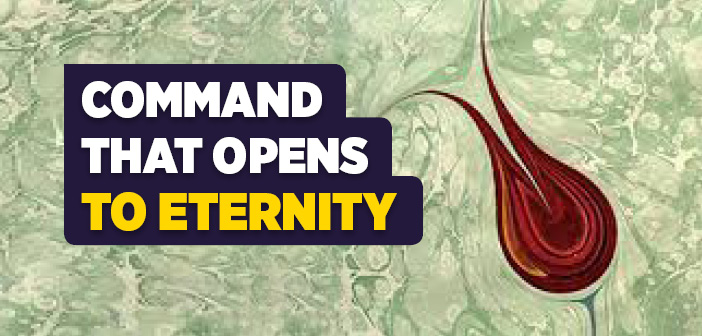What is building character? How to build character?
A person looking to revive Islam must firstly practice Islam. He must not fall prey to his desires. He needs to be a person of direction, with good morals and one who does not expect any personal gain from his invitation.
Habib Najjar had called out to his people, saying:
“Follow those who do not ask for any payment and are themselves rightly guided.” (Yasin, 36:21)
Upon the revelation of the verse:
“Arise and warn!” (Al-Muddatthir, 74:2), the Prophet (SAW) stood on top of Safa Hill and called out to the tribe of Quraysh. They responded to the invitation and gathered on the hill. Standing on top of a high rock, Allah’s Messenger (SAW) said to them:
“Quraysh! If I was to warn you of an enemy cavalry staking out on the skirts of this mountain or in the valley over there, ready to attack you and pounce on your properties, would you believe me?”
Without giving it any thought, they replied:
“Yes, we would! For until this day, we have observed you to be honest. We have never heard you tell a single lie!” (Bukhari, Tafsir, 26; Muslim, Iman 348-355; Ibn Sa’d, I, 74, 200)
Thus;
Before beginning his tabligh, the Prophet (SAW) had his subjects confirm his honest and upright character. He had the people confess that he was indeed honest (Al-Amin) and truthful (Al-Sadiq).
This means that;
A person making tabligh must live upon a righteous path. Even the smallest stain on a white cloth can attract a lot of negative attention. If the cloth is grey or brown, however, it would not even be noticed. Therefore, to become a guiding light, one must firstly correct himself.
Umar (RA) says:
“To reform people, we must first reform ourselves.”
Tabligh cannot be conducted as if a person is running errands, mechanically and without feeling, as if the voice is coming from a speaker. Moreover, those who, in this manner, try to explain Islam without practicing it, face the warnings of the Qur’an:
“Do you command people to do good while forgetting about it yourselves? Will you not use reason?” (Al-Baqarah, 2:44)
For such people, equally distressing is the warning by the Prophet (SAW):
The Prophet (SAW) explains:
“On the night of Isra (Miraj), I passed a by a group of people whose lips were being chopped up by scissors made of fire.
‘Jibril, who are they?’ I asked.
‘They are some preachers from your nation’, he said. ‘Despite reciting the book of Allah, they would enjoin people to do good, while forgetting to do so themselves. Did they ever not think?’” (Ahmed, III, 231, 120, 180, 239; Bayhaqi, Shuab, II, 283. Also see, Bukhari, Badu’l-Khalq, 10; Fitan, 17; Muslim, Zuhd, 51)
Upon building a character, one becomes a person of compassion, mercy and good morals. He looks upon people awaiting guidance, not as criminals to be hated but as ill people searching for a cure with silent pleas, much like wounded birds awaiting help.
Our Prophet (SAW) taught his companions to have crystal clean hearts. They were filled with mercy, compassion and forgiveness towards entire humanity. The below case is a wonderful example:
The Prophet (SAW) had invited the companions to donate for the Tabuk Campaign. Being extremely poor, Ulbah ibn Zayd (RA) could not muster anything to donate. So, he simply said:
“Messenger of Allah! As charity, I forgive the person who has upset me, spoken ill of me or teased me!”
Allah’s Messenger (SAW) accepted his donation and gave him the good news that so did the Almighty Allah. (Ibn Hajar, al-Isabah, II, 500; Ibn Kathir, al-Sirah, IV, 9; Waqidi, III, 994; Bazzar, III, 312)
Without doubt, looking upon all people with mercy and compassion will reflect on a Muslim’s style.
Source: BEING A GUIDING LIGHT, Osman Nuri Topbas, Erkam Publications
 Source: BEING A GUIDING LIGHT, Osman Nuri Topbas, Erkam Publications
Source: BEING A GUIDING LIGHT, Osman Nuri Topbas, Erkam Publications




